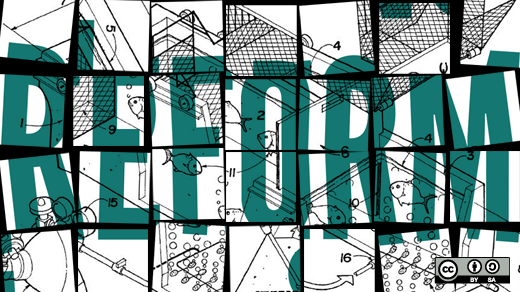In my March 2 post on patent reform, I noted that many of the provisions offered in prior versions of patent reform bills were removed from the pending bill. On March 8, the Senate passed S. 23, now called the “America Invents Act” 95-5. As one might guess, any legislation passed with such unanimity must present little controversy. Such is the case here, as the bill was further stripped before passage, leaving little reform to match the hype with which it was passed.
For example, the damages provision mentioned in my post – already watered down from the version in prior years' bills – was removed. Similarly, the venue provision (also significantly diluted from previous bills) was deleted. In fact, the only controversial provision that made its way into the final bill was the “first to file” provision. Most of the other minor changes in my March 2 post remain intact as well.
On March 30, the House introduced its own variant of the America Invents Act named H.R. 1249. The bill mostly tracks the Senate version with a few exceptions. The most significant differences include expanding post-grant review and prior use rights. With regard to post-grant review, H.R. 1249 expands the first-window review of the Senate bill from 9 to 12 months. The House bill also lowers the threshold for instituting such a review. While the Senate version requires a showing that it is more likely than not that at least one claim of the patent is not patentable, the House version simply requires the petitioner to demonstrate that a substantial new question of patentability exists. This proposed standard is the current one for instituting a reexamination proceeding, under which the Patent Office rarely denies a reexamination request.
Another change in H.R. 1249 is an expansion of prior use rights. Current law provides a prior use defense, but only against business method patents. This defense allows a party accused of infringing a business method patent to escape liability if it can prove that it had developed the patented invention more than a year before the patent was filed, and that it was using the invention commercially before the patent was filed. The House bill would expand this protection to all patents.
Such an expansion is prompted by the change to a first-to-file system. Many companies that develop innovative products or methods choose to keep the innovation as a trade secret, rather than protect it under the patent system. This is because trade secrets can provide protection for as long as they are maintained in secret, whereas a patent has a life of only 20 years from filing. For instance, the formula for Coca-Cola is protected as a trade secret, as is the blend of herbs and spices for KFC’s chicken. This has allowed Coca-Cola and KFC to maintain the secrecy of their inventions, and therefore their monopolies, for much longer than 20 years (back then, though, patents expired 17 years from issuance). Patent law dictates that in exchange for 20 years of excluding others from making, using, or selling an invention, the invention must be publicly described and then dedicated to the public after the expiration of the patent. That is, any patent must (or at least is supposed to) describe how to make the invention. After 20 years, any advantage (other than a healthy head start in the market) is gone.
So why does this matter, other than to make me both hungry and thirsty? Well, under a first-to-invent system, if tomorrow someone independently “invented” the KFC formula, a patent lawsuit against KFC would likely not be successful since KFC was the first to invent the formula. If the U.S. switches to a first-to-file system, without a prior use defense, such a patent suit against KFC could be successful since being the first to invent would have little effect.
In the end, although the small changes in the House bill appear to make sense, the result is still patent reform without any meaningful change. In the past few years, there has been increase in bad patents and their assertion in court. Many of these patents are asserted by non-practicing entities – companies that create no products or innovation, but are formed for the sole purpose of asserting patents. The targets of such lawsuits are often businesses that produce goods and services and foster innovation. Rather than grow their businesses and hire workers and engineers to invest in and develop future technologies, these innovative companies are forced to spend that money on lawyers. Neither the Senate nor House bill will do anything to meaningfully change this disturbing trend.







Comments are closed.